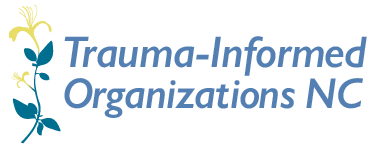The difference between feeling unsafe and uncomfortable is one we need to explore more as many people in the world are awakening to what it means to
Trauma Stewardship
An everyday guide for caring for self and caring for others.
Guide to Reviewing Existing Policies
These questions were developed to review specific policies about service exclusion through a trauma-informed lens.
A Trauma-Informed Workplace: An Introduction to Workforce Wellness
This document developed by Trauma-Informed Oregon provides foundational information about workforce wellness. It provides background and definitions
Guidance on Developing Trauma-Informed Policies and Procedures
General recommendations for developing or updating an organziation's policies and procedures manual through a trauma-informed lens.
Fragrance Free Policy
Many organizations request that people who enter their spaces do not wear fragrances due to allergies or trauma associated with scents. This site
Creating Accessible, Culturally Relevant, Domestic Violence- and Trauma-Informed Agencies: A Self-Reflection Tool
This tool is designed to guide agencies through a self-reflective process on what it might look like to be doing accessible, culturally relevant, and
Tools for Transformation: Becoming Accessible, Culturally Responsive, and Trauma-Informed Organizations
Implementation Support Guide 1: The Social, Emotional, and Relational Climate and Organizational Trauma This is the first in a new series of ACRTI
Creating Trauma-Informed Services and Organizations: An Integrated Approach
Initially developed as a way to bridge trauma-informed and advocacy perspectives, this more integrated approach has evolved into a framework for
Tools for Transformation: Becoming Accessible, Culturally Responsive, and Trauma-Informed Organizations An Organizational Reflection Toolkit
The National Center on Domestic Violence, Trauma & Mental Health (NCDVTMH) has designed this Tool for organizations serving survivors of domestic
SAMHSA’s Concept of Trauma and Guidance for a Trauma-Informed Approach.
The purpose of this paper is to develop a working concept of trauma and a trauma-informed approach and to develop a shared understanding of these
